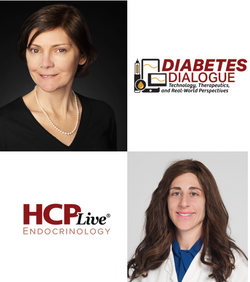
OR WAIT null SECS
FreeStyle Libre Use Associated with Increased Treatment Satisfaction in Both Type 1 and Type 2 Diabetes
A study and a subanalysis of the same study presented at ATTD 23 demonstrate use of the FreeStyle Libre flash glucose monitoring system was associated with improved treatment satisfaction and HbA1c.
A pair of studies presented at the 16th annual conference on Advanced Technologies and Treatments for Diabetes (ATTD 2023) are highlighting associations of FreeStyle Libre usage with treatment satisfaction scores across varying patient populations.
The studies, which examined treatment satisfaction in adults with type 1 (T1D) and type 2 diabetes (T2D) as well as elderly patients with T2D, returned favorable results suggesting use of FreeStyle Libre was associated with significant improvements in treatment satisfaction among all patient populations examined in the study and also suggests frequent daily scanning was associated with reductions in HbA1c.
Treatment Satisfaction in Adults with T1D and T2D1
A post-approval, prospective, multicenter, nonrandomized study of adults with diabetes in the US, the study, which was presented by Eileen Huang, of Abbott Diabetes Care, was launched with the intent of examining diabetes treatment satisfaction using the FreeStyle Libre 14-day glucose monitoring system. The study included a 6-month baseline period where participants used q blood glucose monitoring device and a 6-month follow-up period when participants used FreeStyle Libre to monitor glucose levels.
The study was designed with diabetes treatment satisfaction as the primary outcome of interest with scan frequency and change in HbA1c measurement before and after using FreeStyle Libre considered secondary outcomes of interest. For the purpose of analysis, Diabetes Treatment Satisfaction Questionnaires and HbA1c values were collected and the differences were assessed using t-test. Investigators pointed out the use of multivariable regression models to estimate associations between HbA1c and scan frequency, with these models adjusted for age, sex, race, ethnicity, education, BMI, baseline HBA1c, duration of diabetes, type of diabetes, and medications.
The study enrolled 935 participants. Of these, 744 completed both the baseline and follow-up periods. Of these 744, a total of 80 had T1D and 664 had T2D.
Upon analysis, results indicated use of FreeStyle Libre for glucose monitoring was associated with a significant increase in treatment satisfaction in both T1D (mean total change in score, 13.95; P <.005) and T2D (mean total change in score, 15.57; P <.005). Results also indicated the perceived frequency of hypoglycemia in those with T2D was significantly less after using FreeStyle Libre and daily scan frequency was correlated with a decrease in HbA1c, with each additional scan associated with a 0.04% reduction in HbA1c (95%CI, -0.06 to -0.01; P =.001).
Treatment Satisfaction in Elderly with T2D2
A subanalysis of the larger study detailed above, the second study examined the same outcomes among a subgroup of patients aged 65 years or older within the study’s T2D cohort. Overall, 267 of the 664 adults with T2D met this criterion.
Similar to the overall study, results of the analysis indicate use of the FreeStyle Libre was associated with a significant increase in diabetes treatment satisfaction (mean total change in score, 15.3; P <.005). Additionally, results indicated the perceived frequency of hypoglycemia was significantly less after use of FreeStyle Libre (mean score, -0.2; P=.017) and daily scan frequency was associated with a reduction in HbA1c, with each additional scan associated with a 0.036% reduction in HbA1c (95% CI, -0.070 to -0.003; P =.032).
References
- Huang E, Nada M, Alva S. Huang E, Nada M, Alva S. ASSOCIATION OF FREESTYLE LIBRE USAGE AND TREATMENT SATISFACTION AMONG THE ELDERLY PARTICIPANTS WITH TYPE 2 DIABETES. Advanced Technologies and Treatments for Diabetes (ATTD) 2023.
- Huang E, Nada M, Alva S. ASSOCIATION OF FREESTYLE LIBRE USAGE AND TREATMENT SATISFACTION AMONG THE ELDERLY PARTICIPANTS WITH TYPE 2 DIABETES. Advanced Technologies and Treatments for Diabetes (ATTD) 2023.
Related Content:


